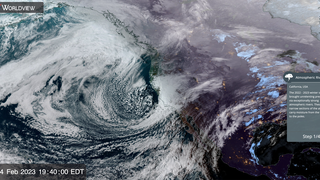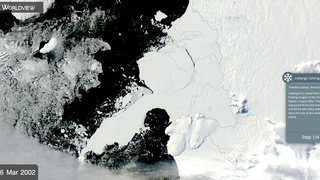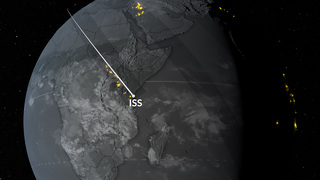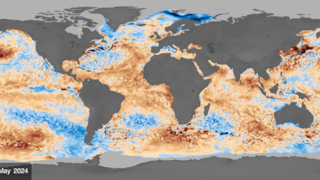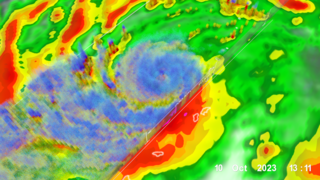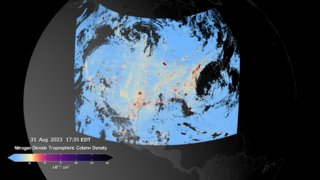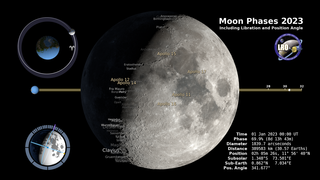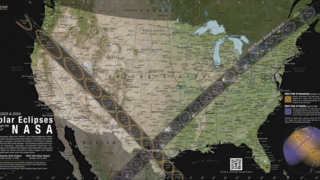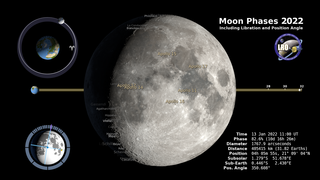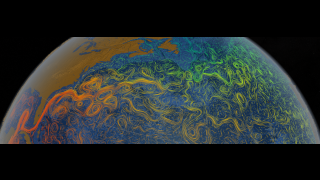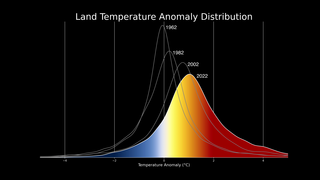Earth
ID: 1203
The year 2000's Antarctic ozone hole is the largest ever observed. Scientists continue to investigate the phenomenon, and are somewhat surprised by its scale. Using data from NASA's Total Ozone Mapping Spectrometer (TOMS) instrument onboard the Earth Probe satellite, researchers can evaluate and compare current conditions over the south pole to readings taken by other instruments in years past. Continued monitoring of polar ozone levels helps researchers gain a better understanding of how the planet's climate may be changing. The following animation shows how ozone loss at the south pole has grown since the mid-80s. Early readings over Antarctica indicate little or no ozone depletion beyond naturally predicted levels. But as the 80s and 90s progress, a clear change in atmospheric chemistry takes place at the bottom of the world. The hole starts small in the late 80s and spreads as subsequent winter cycles break apart ozone molecules.


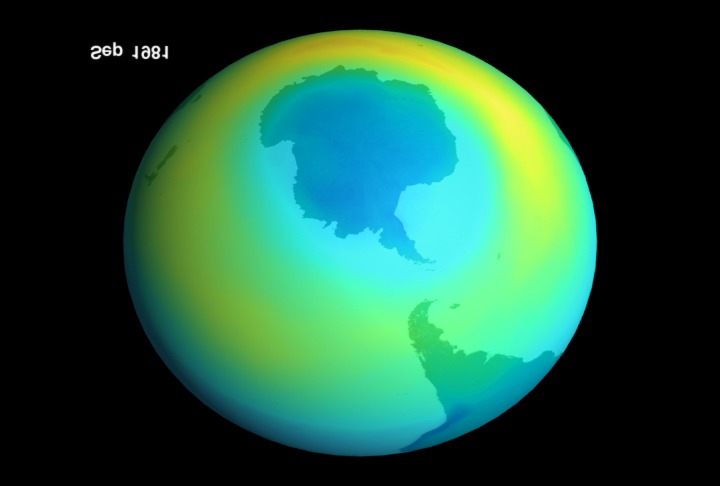
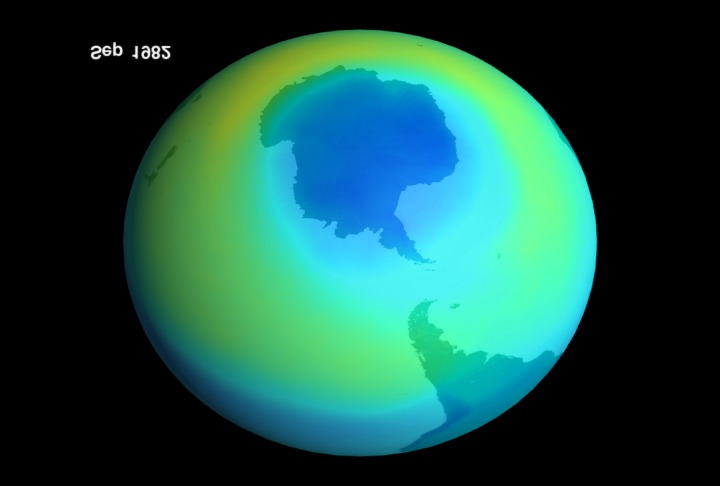



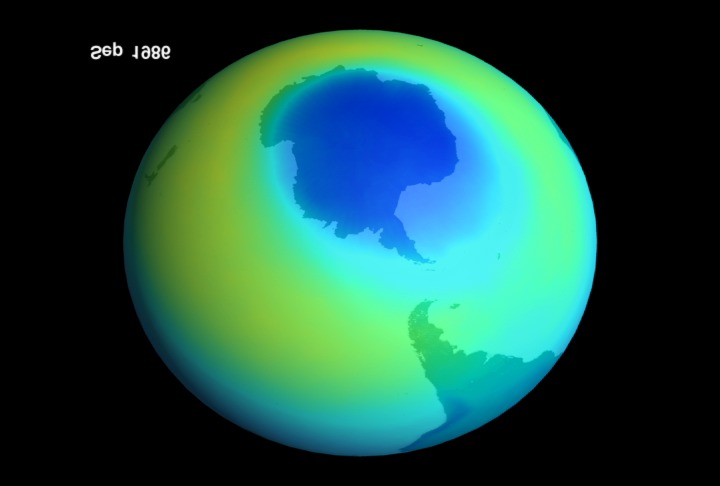




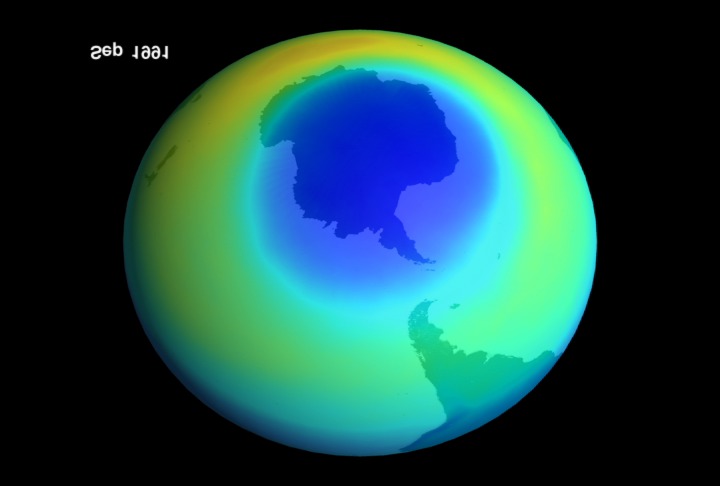


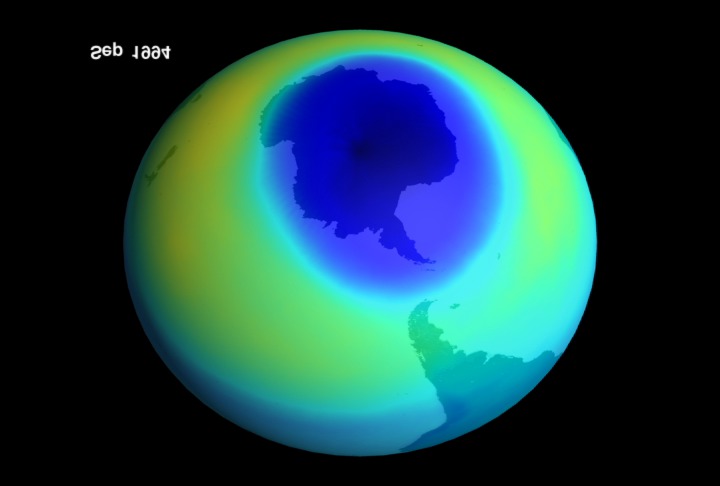






TOMS Ozone at the South Pole: September Averages from 1979 through 2000






















Visualization Credits
Please give credit for this item to:
NASA/Goddard Space Flight Center Scientific Visualization Studio
NASA/Goddard Space Flight Center Scientific Visualization Studio
Short URL to share this page:
https://svs.gsfc.nasa.gov/1203
Data Used:
Note: While we identify the data sets used in these visualizations, we do not store any further details nor the data sets themselves on our site.
This item is part of this series:
Stratospheric Ozone
Goddard TV Tape:
G2000-082A
Keywords:
DLESE >> Atmospheric science
GCMD >> Earth Science >> Atmosphere >> Atmospheric Chemistry/Oxygen Compounds >> Ozone
NASA Science >> Earth
GCMD keywords can be found on the Internet with the following citation: Olsen, L.M., G. Major, K. Shein, J. Scialdone, S. Ritz, T. Stevens, M. Morahan, A. Aleman, R. Vogel, S. Leicester, H. Weir, M. Meaux, S. Grebas, C.Solomon, M. Holland, T. Northcutt, R. A. Restrepo, R. Bilodeau, 2013. NASA/Global Change Master Directory (GCMD) Earth Science Keywords. Version 8.0.0.0.0
https://svs.gsfc.nasa.gov/1203
Data Used:
Earth Probe/TOMS/Total Ozone
September Averages 1996-2000Meteor-3/TOMS/Total Ozone
September Averages 1991-1994Nimbus-7/TOMS/Total Ozone
September Averages 1979-1992This item is part of this series:
Stratospheric Ozone
Goddard TV Tape:
G2000-082A
Keywords:
DLESE >> Atmospheric science
GCMD >> Earth Science >> Atmosphere >> Atmospheric Chemistry/Oxygen Compounds >> Ozone
NASA Science >> Earth
GCMD keywords can be found on the Internet with the following citation: Olsen, L.M., G. Major, K. Shein, J. Scialdone, S. Ritz, T. Stevens, M. Morahan, A. Aleman, R. Vogel, S. Leicester, H. Weir, M. Meaux, S. Grebas, C.Solomon, M. Holland, T. Northcutt, R. A. Restrepo, R. Bilodeau, 2013. NASA/Global Change Master Directory (GCMD) Earth Science Keywords. Version 8.0.0.0.0
